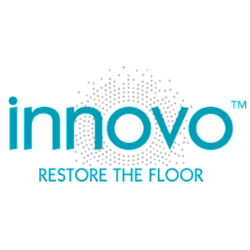I don’t often write posts about my physical health or issues I might be struggling with, but occasionally I do. When I write them, I share in the hopes that I might be helping someone else, or at least that people reading realise they are not suffering alone.
Today, I want to talk about my pelvic floor. Yup, this is going to probably be a TMI (too much information) post.
You see, I have suffered for a long time, with a common issue for many women. My pelvic floor ain’t what it used to be…
I worked as a nurse for a long time, and when I worked in pediatric surgery, I was, to blow my own horn, popular with the surgeons for longer surgical cases because I had what is known as “a bladder of steel”. I was able to scrub and assist in long surgeries (8+ hours) without needing a bathroom break. This meant I could be available for a whole procedure without having to be replaced by another staff member, and meant they had consistent help. I was proud of my ability to control my bladder.
Forward to ten years later and two children after two full term pregnancies and lets just say that it’s not something I can boast about. I have some issues with pelvice floor weakness and stress incontinence. There, I said it, it’s out. I sometimes pee when I sneeze or cough, and when I need to go to the bathroom, I have to go, because otherwise… (I don’t think I need to explain)
“The baby can place a lot of stress on your pelvic floor muscles and can have a weakening effect in as early as 12 weeks into pregnancy” – that’s me…
I carried two big babies, and now suffer from bladder weakness, which is a common issue for women post pregnancy. Unfortunately, most of the normally used exercises to help strengthen your pelvic floor don’t help me, because I had surgery to repair some damage post birth, and so when someone says “well just do some kegel exercises”, I just nod and smile, because I know that’s not the answer.
I don’t want to struggle anymore, and I am tired of worrying about what will happen if I do need to use the bathroom. I want to be able to worry less about my bladder and it’s weakness and enjoy my life more.
So, over the next few months, I will be trying out a specialist device from Innovo – Restore the Floor.

“Innovotherapy is a non-invasive way to restore your pelvic floor, treating the primary cause of urinary leaks rather than just masking the symptoms. Using a hand held controller that is attached to a two part garment, Innovotherapy sends targeted impulses via a set of conductive pads (attached to your upper thigh and buttocks) to safely and effectively activate all the muscles of the pelvic floor or to calm your bladder. It is a proven technology which has been designed to optimally strengthen your pelvic floor with 180 perfect contractions per session, allowing the device to do your pelvic floor exercises for you. No it’s not cheating, it’s just very clever. Innovotherapy, already used by thousands of women, is safe and can be used in the privacy and comfort of your home for lasting results.”
I am incredibly excited about this (I am not jumping for joy yet, because my bladder isn’t quite up to it) and am really hoping that it will work for me. They have had some amazing results.
I will be sharing my progress and thoughts and my final results on the blog over the next few weeks and months. Watch this space, and if you think it might be something that might work for you, you can find out more here
You are going to love it!!
I’m on week 4 and I can jump for joy over it!
I’m going to wait until the full 12 weeks before I post up my results, but have faith, and I look forward to reading your progress xx
Pelvic-floor exercises will really work wonders! Bladder incontinence is a lot more common than we think, so I know a lot of women who have felt significant changes in their pelvic floor health after doing these exercises consistently. Thanks so much for the additional information and sharing your experience with us!